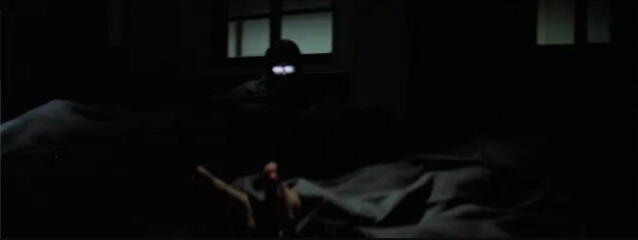
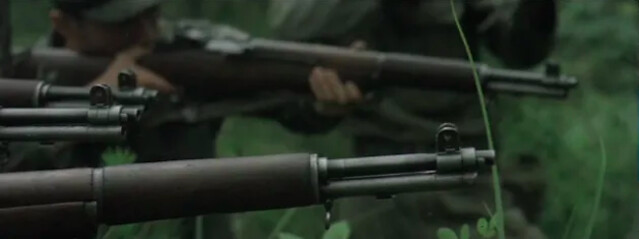

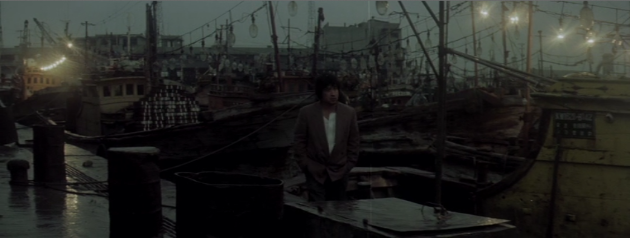
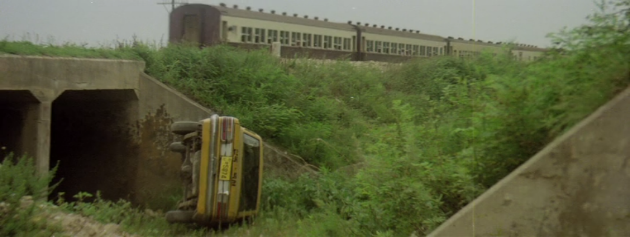
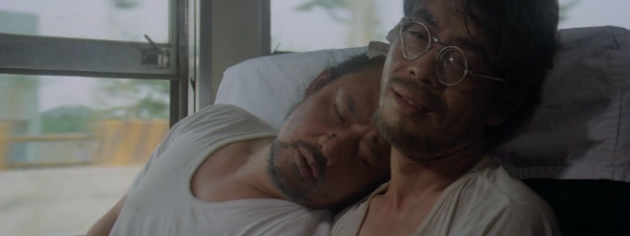
Song Gi-yeol (Kim Hi-Ra), an aging vagrant dying of stomach cancer gets picked up while sleeping in the streets and sent to a 'rehabilitation center': a place where old and invalid homeless people go to live and work (gardening and such) according to a strict schedule and eventually expire. It's a last stop for these unfortunates. There he finds Jjacko/Bak Gong-san (Kim Sang-Soo), his nemesis and obsession over the last 30 years. In the 50s, Song was a cop pursuing Jjacko, the notorious commie guerrila fighter, who's responsible for killing hundreds of civilians. Song's relentless pursuit of the commie took a toll on his life: lost everything that he holds dear and became a limping beggar. But no one at the rehab believes his tall tales and regards him as a mental case. Yet he is determined to bring Jjacko to justice and clear his name once and for all.
There are a lot of technical and plot issues with the version of the film I saw - there are scenes cutting out, has a terrible audio in some parts. Some seemingly important elements and motives are planted but never play out. And this being made while Korea was still in military dictatorship, there are no real political nuances to speak of: it's given that the reds are dirty, evil civilian killers and nothing more. Different ideologies that divided the country never factor in.
Jjacko is a slang for people with asymmetrical nose. It's also interesting to note that the bad commie is an ugly man with a huge mole over his nose and the cop always wears dark shades very much similar to ones Park Jung Hee (a military dictator who was assassinated in 1979)'s trademark look. I wonder if that was intentional or not.
But the film's all about how both sides suffered non-discriminately and that no one really cares now. Through overly melodramatic flashbacks, we see how both Song and Jjacko are alike in suffering- Jjacko as a fugitive and Song as an obssessive pursuer. These are also very macho characters who never regrets anything. Remorse doesn't figure in their thoughts. And women are just there to be sacrificed and remembered. Im is a competent director who always provides with some stunning compositions and energetic camera movements. He also weaves in two men's flashbacks as how their lives are connected in dramatic and bizarre ways. Jjacko is not a great film but an interesting one nonetheless.